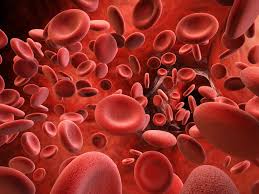
FDA Approves Novo Nordisk's Alhemo: A Groundbreaking Treatment for Hemophilia A and B Patients with Inhibitors
Novo Nordisk has achieved a major milestone with the U.S. Food and Drug Administration's (FDA) approval of Alhemo (concizumab-mtci), a once-daily subcutaneous injection designed to prevent or reduce bleeding episodes in adults and children aged 12 and older with hemophilia A or B with inhibitors. This development underscores Novo Nordisk’s more than 35-year commitment to addressing rare bleeding disorders.
Alhemo represents a revolutionary shift in hemophilia treatment as the first subcutaneous prophylactic option for patients with inhibitors, offering a more convenient and less invasive alternative to traditional intravenous infusions. The drug is administered via a prefilled, premixed pen using a thin 32-gauge needle, simplifying the process for patients.
As a tissue factor pathway inhibitor (TFPI) antagonist, Alhemo works by blocking TFPI, a protein that inhibits blood clotting. This mechanism boosts the production of thrombin, a critical protein in clot formation, helping to address bleeding risks when clotting factors are missing or deficient due to inhibitors.
For individuals with severe hemophilia A, around 30% develop inhibitors, while 5–10% of those with severe hemophilia B face similar complications. These inhibitors make managing bleeding episodes particularly challenging, creating a significant treatment gap. While advancements in hemophilia care have improved outcomes for many, patients with hemophilia B and inhibitors have had limited prophylactic options. Alhemo’s approval addresses this critical unmet need, having been granted Breakthrough Therapy Designation by the FDA based on promising Phase 2 trial results.
Anna Windle, Senior Vice President of Clinical Development at Novo Nordisk, highlighted the significance of this development, calling it a transformative step in hemophilia care. “The approval of Alhemo signifies a remarkable achievement in prophylactic hemophilia treatment for individuals with inhibitors aged 12 years and older who, in some cases, currently have few options,” she said. Windle emphasized that this first-of-its-kind treatment reflects Novo Nordisk’s dedication to advancing patient-centric innovations in rare diseases.
Clinical trials have demonstrated Alhemo’s efficacy in significantly reducing bleeding episodes. Data from the pivotal Phase 3 explorer7 study showed an 86% reduction in the annual bleeding rate (ABR) among patients receiving Alhemo prophylaxis compared to those without prophylaxis. Patients on Alhemo experienced an average ABR of 1.7, compared to 11.8 in the non-prophylaxis group. Notably, many patients treated with Alhemo had no bleeding episodes during the trial, a stark contrast to the outcomes for those without prophylaxis.
The safety profile of Alhemo is equally noteworthy. The most common side effects reported were injection site reactions and urticaria, with serious adverse events such as renal infarct and hypersensitivity occurring rarely.
This approval marks a new era in hemophilia care, offering renewed hope for patients with hemophilia A or B with inhibitors. By combining innovative science with patient-focused solutions, Novo Nordisk is paving the way for improved outcomes and a better quality of life for those affected by rare bleeding disorders.